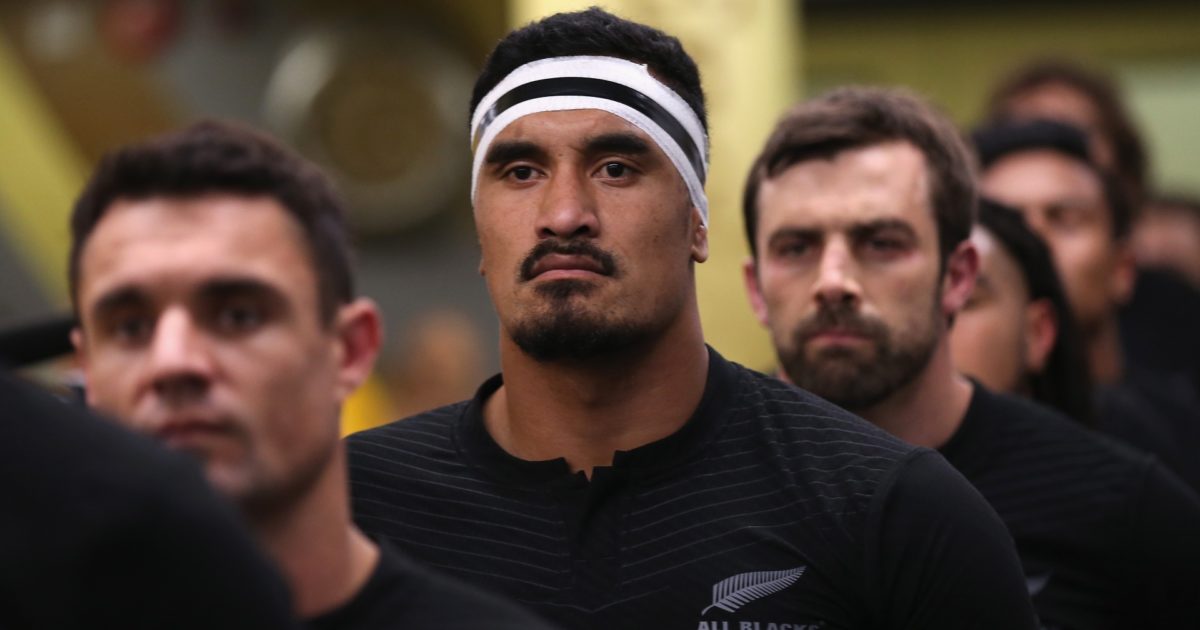5 All Blacks join the Pacific Rugby Players Welfare union board, including double RWC winner Jerome Kaino

Dan Leo’s Pacific Rugby Players Welfare union have added a potent line-up of eleven current players to their now 49-strong board. The impressive list of new additions, which includes five All Blacks and three Fijians, have 257 Test caps between them, the list headed by double World Cup winner Jerome Kaino.
“I’m proud to be a part of the Pacific Rugby Welfare board to help make a positive change for Pacific rugby. Stronger together,” said Toulouse-based back row Kaino after he was unveiled as part of a roster that included four other All Blacks, Hurricanes duo Ardie Savea and Ngani Laumape, Montpellier’s Anthony Tuitavake and Bordeaux’s Seta Tamanivalu.
The three Fijians who have stepped up are Bath’s Josh Matavesi, Nevers’ Ilikena Bolakoro and Grenoble’s Tim Nagusa. They are joined by Tongan Nasi Manu, who has been with Treviso, and an American international pair, Washington’s Andrew Durutalo and Seattle’s Shalom Suniula.
These additions have enabled the PRPW to become the first players association in the world to have representatives in every major rugby competition. “The game is changing rapidly and so are the needs of our Pacific players,” said CEO Leo.
“It would be naive to think that today’s PI player concerns and struggles are exactly the same as those myself and other more senior board members had even four or five years ago. There will be similarities but rugby’s growth in places like America and Spain, which are the fastest-growing markets for Pacific players, on top of challenges like Covid-19 means we are having to adapt quickly.
WATCH ?| Pacific Rugby Players Welfare (PRPW) are proud to announce new Board Members for 2020, becoming the first Players Association in the world to have representatives in every major rugby competition ??
FULL STORY HERE: https://t.co/OuRWEx9tja pic.twitter.com/S5TbHJoAEt
— PacificRugbyWelfare (@pacificwelfare) June 11, 2020
“As a board, we realised many of us were either retired or coming to the end of our careers, so an injection of fresh blood, players who are in the prime of their careers and passionate to see Pacific rugby reach its potential, is important for us as an organisation staying in touch with the modern demands of the game.”
In a video message announcing the expanded board, Savea said: “I’m proud to be part of the Pacific Rugby Welfare board to help make a positive change for Pacific rugby.”
Tuitavake added: “I’m really happy and privileged to be part of the board. Together we help support each other and support the Pacific rugby communities all around the world.”
Leo, whose own relocation to Australia after finishing his playing career in England has been put on hold due to the Covid pandemic, told RugbyPass last March: “It’s important our levels of advocacy for these players match the amount of influence we have in the game.
“We need the financial system to change. Changing eligibility rules would be helpful in the short term in terms of increasing competitiveness of our national teams now, but it’s not a long-term solution.
“It needs to be the system, the way money is distributed in the sport. That needs to be turned upside down. Too much wealth in the game is distributed among the top tier nations, but these bigger nations should get a bit less of the communal pot.”
ICYMI: @danleo82 @pacificwelfare gave chapter and verse on how odds stacked against Pacific Island and @T2Rugby just weeks before the lockdown kicked in and @WorldRugby tier one nations suddenly realised what life is like without regular cashflow #StayAtHomeAndStaySafe #rugby https://t.co/Cms42ZwwOb
— RugbyPass (@RugbyPass) March 29, 2020





























